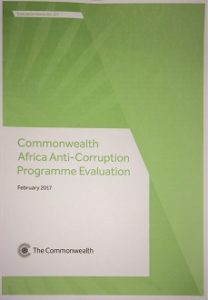Digital Government in Developing Countries

Posted by David Fellows and Glyn Evans[1]
With the aid of development partners, developing countries are making commitments to maximise the use of digital technology. The ICT industry is right behind them. In these reforms, digital technology is being represented as the principal transformative medium of government. But to think of “Digital Government” as necessarily transformative, almost an end in itself, is misguided. Governments should be primarily concerned to provide their services and engage with electorates in the most cost-effective way. Digital technology may or may not have a role in that process.
Here are some of the fields in which digital technology has demonstrated that it has a potential role to play in developing countries:
- Transparency and public engagement
- Basic public service delivery in the fields of health and education
- Public safety and security
- The collection of tax and non-tax revenues
- The management of population growth in urban areas
- The sustainability and development of rural communities
- Skill shortages throughout the economy
- Economic diversification
- Measures to combat corruption
- Resilience to natural disasters
We do not accept, however, that the answer to any of these challenges is necessarily a massive investment in digital technology, say a ‘digital city’ or a fully integrated expenditure, revenues and payments system.
Many developing countries are not well positioned to make sustainable progress with digital technology in huge multi-faceted programmes requiring vast initial expenditure. This form of development may do little more than provide substantial fee income for international consultancies and software developers. Once the consultants are gone and system design faults surface, client needs change or in-house staff are poached by others, then the facilities that promised so much may become more of a hindrance than an advantage.
Things may not even get that far. Without governments having sufficient staff with the necessary technical skills, digital systems may never be properly configured and the client may be left with a partially implemented system. Nevertheless, it is surprising how many such projects are specified and funded. Problematic factors are sometimes acknowledged without being fully taken into account.
We suggest that an evolutionary approach to digitally-enabled reform offers a more realistic way forward. The process should start with an analysis of the operational imperatives for improvement. This requires the following ten-point strategy:
- A clear vision for future service delivery and the developing relationship between citizens and the government
- A thorough assessment of internal resources (skills, knowledge, staffing commitments and budgets) required to support the implementation of reform and new ways of working
- An overhaul of management philosophy and governance arrangements
- The identification of mechanisms to address relevant gaps in capacity including improvements in the recruitment and training of in-house staff and encouragement of local firms to upgrade their ICT capacity incrementally to support public service digital applications (multinational collaboration for the professional development of public servants and the improvement of governance and working practices are addressed in previous blogs)
- An examination of the various options by which change can be achieved
- A robust approach to investment appraisal
- An assertion of priorities based on sound information and analysis
- A clear strategy to deliver project sustainability (including security)
- The identification of the benefits sought and how such benefits are to be achieved, and
- A relentless focus on benefits realization accompanied by the modification of working methods to rectify performance shortfalls.
This approach is based on our past work, which we can illustrate with examples of two completed major projects, as well as our experience in developing countries.
The first example in Knowsley, one of the UK’s most deprived areas, was one of the world’s first “smart city” projects, started in 1997. It featured public information systems, electronic application forms, payment facilities, public feedback on quality of service, schoolwork support, an interactive liveability learning application for mentally challenged young adults, digital enablement schemes and public availability of PCs in libraries and community centres.
The second project in Birmingham, the UK’s largest metropolitan municipality was probably the largest digitally-enabled change programme ever undertaken in a European city. It included the digitisation of procurement, HR (including performance management) and accounting practices, providing managers with accurate, real-time information, and digitising customer contact and the fulfilment management of customer requests, resulting in customer satisfaction improving by 20 percentage points. The entire change programme realised revenue savings of £100 million a year.
These examples suggest that it is possible to make significant reductions in the risk to both funders and recipients of digital-enabled developments by:
- Preparing an organisational readiness analysis and development strategy as set out above
- Establishing the necessary roles and finding the right people to fill those roles
- Monitoring and evaluating progress, and
- Responding with operational modifications as necessary to achieve the desired outcomes, and as technological advances offer fresh opportunities.
Some developments will not necessarily require state financial or operational support. Private sector encouragement may be sufficient. For example, physical planning that offers confidence to developers or infrastructure standards that support the public use of digital technology.
In our view, a challenging reform agenda demands a flexible approach, cool judgement and realistic timescales. Those in positions of responsibility should take steps to avoid being found friendless and trapped by the expectations and largesse heaped upon them.
[1] David Fellows is a director of PFMConnect Ltd, a management consultancy specialising in financial, digital and engineering services for developing countries. He is a winner of the Swedish Prize for Democratic Digital Service Delivery. Glyn Evans is the Vice President of the Major Cities of Europe IT Users Group and former CIO of various major cities.


 Background
Background